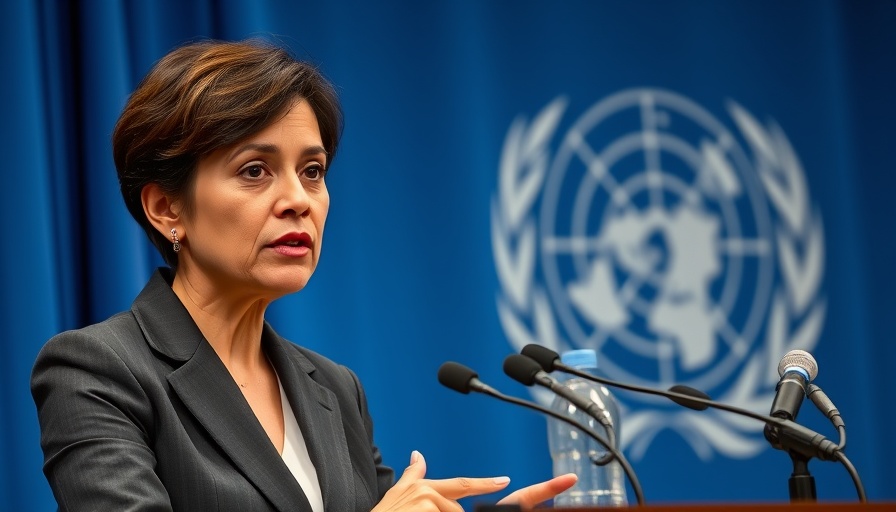
MINUSCA's Role in Central African Republic's Upcoming Elections
The United Nations Multidimensional Integrated Stabilization Mission in the Central African Republic (MINUSCA) is encountering significant hurdles as it prepares for a crucial election season. Set to unfold in the coming months, the elections have sparked concerns surrounding the security, governance, and stability of the region. With presidential elections looming, MINUSCA’s capacity to ensure safety amidst ongoing conflicts is under scrutiny, highlighting the intricate relationship between governance and peacekeeping.
Understanding Internal and External Tensions
As MINUSCA gears up for these pivotal elections, tensions have arisen between key figures within the mission, including mission chief Valentine Rugwabiza and electoral division head Arsène Gbaguidi. This internal discord raises questions about the mission's effectiveness and its ability to project authority amid a fragile political climate. Furthermore, international stakeholders are expressing skepticism about MINUSCA's efficacy, which compounds the challenges already faced by the mission.
The Significance of Democratic Processes
The upcoming elections are not merely procedural events; they represent a vital attempt at fostering democracy in the Central African Republic (CAR). The international community has long advocated for democratic governance as a means to combat corruption, strengthen human rights, and promote national reconciliation. However, skepticism looms large. The role of MINUSCA in safeguarding the electoral process is crucial to ensure these goals are met, as the country grapples with the legacies of colonialism, ethnic conflicts, and the lingering impacts of corruption.
Challenges Facing the Central African Republic Today
The CAR continues to face several obstacles, including economic challenges, severe poverty, and a humanitarian crisis exacerbated by conflict. As the country prepares for elections, infrastructure deficits pose a significant hurdle to democratic participation, with many citizens at risk of being disenfranchised due to logistical difficulties. Efforts to improve education, healthcare, and economic growth are paramount for sustaining a democracy; thus, the success of the elections could have far-reaching implications for these sectors.
Paving the Way for Future Opportunities
If orchestrated effectively, the elections could serve as a turning point for the CAR. Emphasizing the importance of civic engagement and participation can empower the youth and marginalized groups, fostering an environment of innovation and entrepreneurship. Future development initiatives must prioritize inclusivity and resilience to cultivate a sustainable political landscape.
Global Perspective on Central African Developments
The situation in CAR is emblematic of broader regional issues, with various African nations striving for democratic governance amidst economic turmoil and social unrest. The Central African Republic's elections will not only affect local governance but may also influence regional stability and integration efforts. International partnerships, such as those within the African Union and ECOWAS, must prioritize strategic collaborations that promote peacebuilding, trade, and mutual support amidst the evolving geopolitical landscape.
Conclusion: The Path to Empowerment Through Elections
As the Central African Republic stands at a crossroads, the approaching elections signal an opportunity for its citizens to influence their governance and secure their rights. It is imperative that MINUSCA, alongside international partners, addresses both internal tensions and skepticism to uphold its mission of peace and stability. The future of the CAR hinges upon democratic engagement and the collective efforts of its people and global allies.
 Add Row
Add Row  Add
Add 




Write A Comment